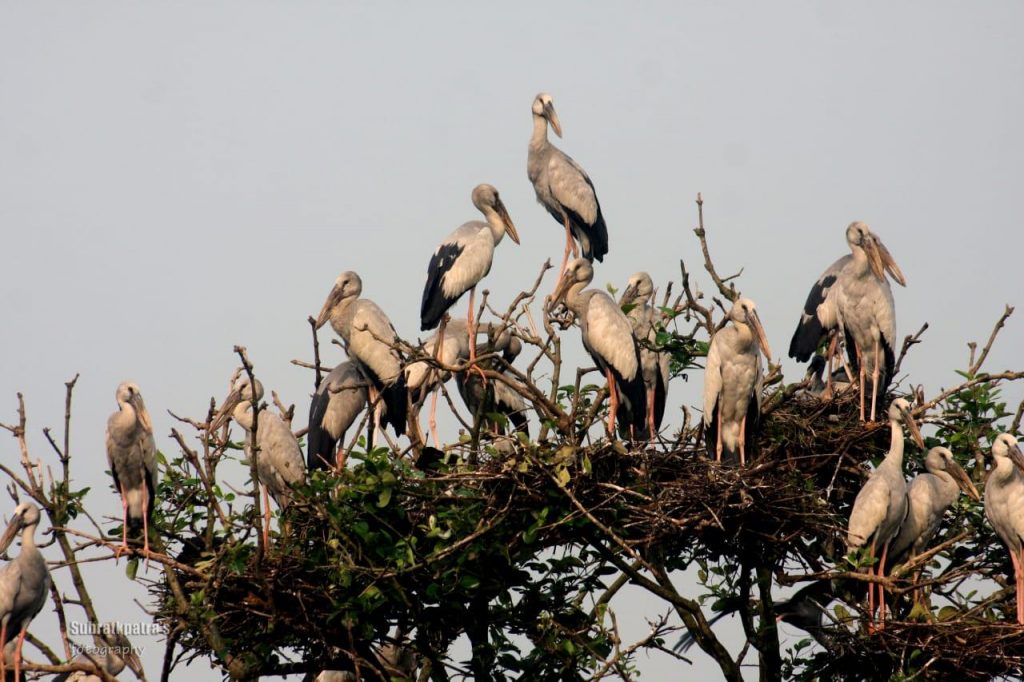Kendrapara: The Bhitarkanika National Park (BNP) will carry out the cyclical monsoon bird census from September 18 to September 24 at couple of places within BNP.
Notably, the BNP had postponed the monsoon bird census drive which was scheduled to be held from August 23 to August 30 as fewer birds thronged Matha-Adia and Bagagahan and the nesting process did not start during that time, informed Subrat Kumar Patra, the ACF –cum- in charge of Kanika forest range.
Earlier, resident birds thronged Matha-Adia during the onset of monsoon, but later when monsoon played truant they skipped Matha-Adia. They returned to Matha-adia when rain picked up.
Bagagahan has been a favourite nesting place for residential birds over the years. However, over last three/four years, the bird species had shifted their favourite nesting place from Bagagahan to Matha-Adia. But in the latest development, the monsoon birds have again shifted their nesting place from Matha-Adia to a new place called Laxmiprasaddiha.
According to Rajnagar DFO Bikas Ranjan Das Mangrove Forest and Wildlife Division, monsoon birds were spotted more in Laxmiprasad Diha covering 10 hectares of mangrove forest than their favourite nesting place at Matha-Adia.
Fewer monsoon bird nests were sighted at Matha-Adia, but the congregation of monsoon birds at Bagagahan is nil till date.
Three teams have been formed to carry out the census drive of monsoon bird species at a couple of places including Laxmiprasad Diha and Matha-Adia. Basically, 11 types of residential birds throng to BNP every year for nesting and breeding. They include open bill storks, little cormorants, Intermediate Egrets, Large Egrets, Little Egrets, Purple Herons, Grey Herons, Night Herons, Darters, White Ibis and Cattle Egrets, Patra said.
With the onset of monsoon season, these birds generally come in large numbers to BNP and the nesting process gets over by the end of mid-November. The dense mangrove vegetation and its serene pollution free atmosphere within BNP are a favourite nesting place for thousands of residential winged visitors.
